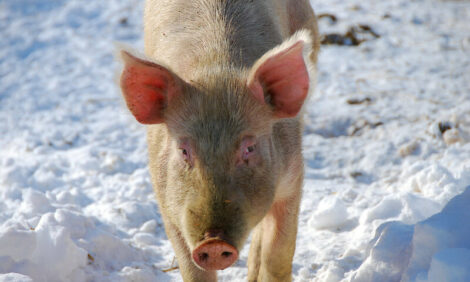



Pigs as Source of Antibiotic-Resistant Staph Aureus Infections in Humans
DENMARK - H. Lewis from Statens Serum Institut in Copenhagen and colleagues are to publish a paper that appears to confirm the link between pigs and a new antibiotic-resistant infection in human patients.An emerging sub-type of methicillin-resistant Staphylococcus aureus (MRSA), clonal complex (CC) 398, is associated with animals, particularly pigs.
H. Lewis and co-workers conducted a matched case–control and a case–case study comparing 21 CC398 case-patients with two controls randomly selected from the Danish Civil Registry and two case-patients infected with MRSA other than CC398.
On farms of case-patients, animals were examined for MRSA.
* "To limit further spread [of MRSA CC398], pig farmers may warrant screening and isolation on admission to hospitals" |
|
H.C. Lewis et al.
|
History of hospitalisation was associated with an increased risk only in the case–control study (MOR 11.4, 95% CI 1.4–94.8).
A total of 23 of 50 pigs on 4 of 5 farms were positive for CC398. Our results, corroborated by microbiological testing, demonstrate that pigs are a source of CC398 in Denmark.
Conclusions
Transmission of CC398 from a zoonotic reservoir to humans could undermine existing MRSA control programs. The authors therefore recommend increased awareness among healthcare professionals that animals are a possible source of MRSA infection and that the potential for person-to-person spread exists.
To limit further spread, pig farmers may warrant screening and isolation on admission to hospitals as has been implemented in the Netherlands.
Lewis H.C., Mølbak K., Reese C., Aarestrup F.M., Selchau M., Sørum M., et al. 2008. Pigs as source of methicillin-resistant Staphylococcus aureus CC398 infections in humans, Denmark. Emerging Infectious Diseases, 2008 Sep. [Epub ahead of print]








